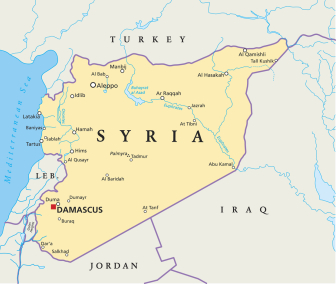
It is an interesting exercise to ask a group of people what they think is currently the most common cause of human mortality. Generally, people come up with causes such as cancer, heart disease, or malnutrition. Almost no one ever comes up with the correct answer, which is in fact abortion.
According to the Worldometer database, more than 44.6 million abortions were performed in the world last year. Given that each of these abortions would have resulted in a death, this means that abortion dwarfs all the other reasons why human beings died last year.
For example, the second leading form of death - communicable diseases - killed 12.9 million people, cancer killed 8.2 million people, 4.9 million people died of causes related to smoking, 2.4 million people died of alcohol misuse, 1.6 million people died due to HIV or AIDS, 1.3 million people died in traffic accidents, 1 million people died because of suicide, and 17,000 people died of hunger.
Also, according to Worldometer, the total number of deaths due to COVID since 2020 has been 6.9 million.
To put the figures another way, what the statistics tell us that in the last year some 40% of human deaths were due to abortion and overall, over six times more people died because of abortion last year than have so far died in the entire Covid pandemic since 2020.
Given these figures, and given that abortion is a completely preventable form of death, one might expect that there would be a worldwide campaign to prevent abortion, just as there are worldwide campaigns to prevent deaths by communicable diseases, cancer and hunger. In fact, however, the opposite is true. Although there are bodies that campaign against abortion (most notably the Roman Catholic Church), the majority view among both governments and non-governmental bodies alike is that abortion is something that should be supported.
We can see this, for instance, if we look at what is said at the website of the World Health Organisation (WHO), the United Nations body responsible for healthcare issues. The WHO's website totally ignores abortion as a cause of death and on the contrary argues that abortion is an integral part of the provision of healthcare.
The website declares:
"Access to the highest attainable standard of health, including sexual and reproductive health, is a core human right. The ability to decide if and when to have children, and access to safe, timely, affordable, respectful and person-centred abortion care, including information and post-abortion care, helps to safeguard the health and well-being of women, girls, their families and their communities.
"Health is a human right, and abortion care is health care. Promoting and protecting access to quality abortion care is essential to achieve a world where everyone is able to access the highest standards of sexual and reproductive health services, and reach their full potential."
What you will not find anywhere on the WHO site is any discussion of the fact that abortion means that tens of millions of people every year will never be able to reach their full potential because they died before they were born. What the WHO supports, even if it does not say so, is a trade-off, the deaths of millions of the unborn in order to achieve a better life for those who have been born.
In ethics in general this kind of trade-off is regarded as unacceptable. For example, it is regarded as immoral and illegal for parents to kill their children once they have been born, even if the parents' life would be improved as a result. The killing of innocent life (and unborn children are most definitely innocent life) is almost universally regarded as morally wrong, full stop.
Why, then, is there such support for abortion? There are three arguments that are normally put forward as to why abortion should be regarded as an exception to the ban on taking innocent life.
The first argument is that an unborn child is not in fact a separate human being. It is a part of a woman's body, and a woman has the right to decide what she chooses to do with her own body. The problem with this argument is that we know medically that a foetus is in fact a separate being from its mother.
As one obstetric nurse puts it: "It's the placenta and umbilical cord which separate the mother from the baby and prove that the foetus was never part of its mother's body ... The placenta and umbilical cord exist precisely because the baby has a different and separate circulatory system from the mother and their blood must not intermingle. If something happens, such as a traumatic injury, that causes their blood to mix, it can cause serious complications. If the foetus were not a separate human being but were only part of its mother's body, it would not need a placenta and umbilical cord to separate them. It could simply grow inside one of her body cavities like a tumour without any barriers between the two to protect each of them."
The second argument is that the unborn child may have a separate biological existence, but it is not a human person because it lacks essential qualities of personhood, such as self-awareness and self-determination. As the Baptist scholar Francis Beckwith writes in his article 'Abortion, Bioethics and Personhood', defenders of this position hold that: "... once a human being, whether born or unborn, acquires a certain function or functions—whether it is brain waves, rationality, sentience, etc.—it is then and only then that a person actually exists. Those who defend these personhood criteria typically make a distinction between 'being a human' and 'being a person.' They argue that although foetuses are members of the species homo sapiens, and in that sense are human, they are not truly persons until they fulfil a particular set of personhood criteria."
However, as Beckwith goes on to argue, this definition of personhood in terms of the performance of certain function is an inadequate definition of what makes a human being a person: "Although functional definitions of personhood may tell us some conditions that are sufficient to say that a being is a person, they are not adequate in revealing to us all the conditions that are sufficient for a particular being to be called a person. For example, when a human being is asleep, unconscious, and temporarily comatose, she is not functioning as a person as defined by some personhood criteria. Nevertheless, most people would reject the notion that a human being is not a person while in any of these states."
As he goes on to say, the key question is not whether someone is currently exercising one of the functions that constitute personal existence, but whether they are a being that has the natural capacity to do so: "what is crucial morally is the being of a person, not his or her functioning. A human person does not come into existence when human function arises, but rather, a human person is an entity who has the natural inherent capacity to give rise to human functions, whether or not those functions are ever attained. And since the unborn human being has this natural inherent capacity from the moment it comes into existence, she is a person as long as she exists."
The third argument is that even if the unborn child is a person and so abortion does involve the taking of a human life, this can be justified because a foetus does not possess the same rights as the woman desiring an abortion. As Mary Williams puts it: "a foetus can be a human life without having the same rights as the woman in whose body it resides. She's the boss. Her life and what is right for her circumstances and her health should automatically trump the rights of the non-autonomous entity inside of her. Always."
The problem with this argument is that it is an ethic of raw power ('she's the boss'). A woman has autonomy of action whereas a foetus does not. According to this argument, a woman has the right to end the life of the child if that is what is right for her. The difficulty is that the 'therefore' does not follow. Just because I can end another person's life, and it would advantage me to do so, does not mean that I have the right to end it. For example, it would not be right for me to kill someone to gain an inheritance even if that person was incapacitated because of illness or injury and therefore could not prevent me from doing so.
Because these arguments do not work, what follows is that we have to regard the unborn child as a person created, like all other persons, by God in his image and likeness (see Psalm 139:13-18, Genesis 1:26-27) and abortion as an act of unjustified killing in breach of the commandment 'You shall not kill' (Exodus 20:13).
What this means is that Christians need to be prepared to stand up and say that abortion is morally wrong. However, Christians cannot stop there. There are three other things they have to do.
First, they have to understand the terrible pressures, both social and personal, that lead women to believe that abortion is the best option available to them and do all that they can to prevent or alleviate them.
Secondly, they have to make other options available. As Nancy Pearcey notes, "the early Christians went beyond simply condemning abortion to providing alternatives – rescuing and adopting children who have been abandoned." Translated into modern day terms this means that Christians need to be ready to support a mother to bring up her child herself if this is what she wants and is able to do, or to take steps to ensure that the child is adopted by a loving family.
Thirdly, they have to support women who have had an abortion, many of whom may feel terrible regret or guilt over what they have done, and to make clear to them that in spite of what they have done God in Christ forgives them and wants to give them a new start with him. Moreover, although their babies are no longer in this world, they are safe in the arms of God and in due time they will be able to be reunited with them in the joy of God's eternal kingdom.
Martin Davie is a lay Anglican theologian and Associate Tutor in Doctrine at Wycliffe Hall, Oxford.







